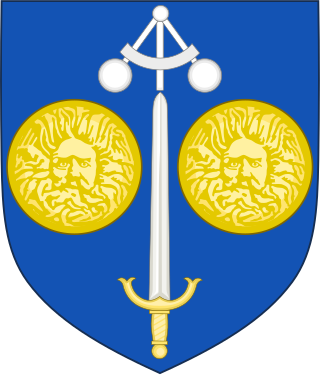Related Research Articles

The University of Bath is a public research university in Bath, England. It received its royal charter in 1966, along with a number of other institutions following the Robbins Report. Like the University of Bristol and University of the West of England, Bath can trace its roots to the Merchant Venturers' Technical College, established in Bristol as a school in 1595 by the Society of Merchant Venturers. The university's main campus is located on Claverton Down, a site overlooking the UNESCO World Heritage city of Bath, and was purpose-built, constructed from 1964 in the modernist style of the times.

London Metropolitan University, commonly known as London Met, is a public research university in London, England. The University of North London and London Guildhall University merged in 2002 to create the university. The University's roots go back to 1848.
The Nuffield Foundation is a charitable trust established in 1943 by William Morris, Lord Nuffield, the founder of Morris Motors Ltd. It aims to improve social well-being by funding research and innovation projects in education and social policy, and building research capacity in science and social science. Its current chief executive is Tim Gardam.

The Russell Group is a self-selected association of twenty-four public research universities in the United Kingdom. The group is headquartered in Cambridge and was established in 1994 to represent its members' interests, principally to government and Parliament. It was incorporated in 2007. Its members are often perceived as being the UK's best universities, but this has been disputed.

The University of Portsmouth (UoP) is a public university in Portsmouth, England. Comprising five faculties, the university offers a wide range of academic disciplines. With around 28,280 students enrolled in undergraduate and postgraduate programs, the university in 2022 was the 25th-largest higher education institution by student enrolments in the United Kingdom. The university employed approximately 3,500 staff in 2020.

Universities UK (UUK) is an advocacy organisation for universities in the United Kingdom. It began life in the early 20th century through informal meetings of vice-chancellors of a number of universities and principals of university colleges and was previously known as the Committee of Vice-Chancellors and Principals of the Universities of the United Kingdom (CVCP). As of August 2023, UUK is led by President Sally Mapstone – Vice-Chancellor and Principal of the University of St Andrews – and Chief Executive Vivienne Stern. UUK is registered charity with an annual income of £13.7 million, which is largely raised from its member institutions.
The Higher Education Funding Council for England (HEFCE) was a non-departmental public body in the United Kingdom, which was responsible for the distribution of funding for higher education to universities and further education colleges in England since 1992. It ceased to exist as of 1 April 2018, when its duties were divided between the newly created Office for Students and Research England.

The University of Gloucestershire is a public university based in Gloucestershire, England. It is located over three campuses, two in Cheltenham and one in Gloucester. In March 2021, the university purchased the former Debenhams store in Gloucester City Centre, with a new campus due to open there in 2023.

Arts University Bournemouth is a further and higher education university based in Poole, England, specialising in art, performance, design, and media. It was formerly known as The Arts University College at Bournemouth and The Arts Institute at Bournemouth and is the home of Bournemouth Film School.

Jisc is a United Kingdom not-for-profit organisation that provides network and IT services and digital resources in support of further and higher education and research, as well as the public sector. Its head office is based in Bristol with offices in London, Manchester, and Oxford. Its current CEO is Heidi Fraser-Krauss, who joined in September 2021 from the University of York.

The Scottish Funding Council, formally the Scottish Further and Higher Education Funding Council, is the non-departmental public body charged with funding Scotland's further and higher education institutions, including its 26 colleges and 19 universities.
The National Student Survey is an annual survey, launched in 2005, of all final year undergraduate degree students at institutions in England, Scotland, Wales and Northern Ireland within the United Kingdom. The survey is designed to assess undergraduate students' opinions of the quality of their degree programmes, with seven different scores published including an "overall satisfaction" mark.

University Alliance (UA) is an association of British universities formed in 2006 as the Alliance of Non-Aligned Universities, adopting its current name in 2007.
Sir Ronald Urwick Cooke, FRGS DL is a professor of geography and geomorphology who was vice-Chancellor of the University of York from 1993 to 2002.
Learning on Screen - The British Universities Film & Video Council (BUFVC) is a representative body promoting the production, study and use of moving image, sound and related media for learning and research. It is a company limited by guarantee, with charity status, serving schools, colleges and post compulsory education interests in the UK.
The Research Excellence Framework (REF) is a research impact evaluation of British Higher Education Institutions (HEIs). It is the successor to the Research Assessment Exercise and it was first used in 2014 to assess the period 2008–2013. REF is undertaken by the four UK higher education funding bodies: Research England, the Scottish Funding Council (SFC), the Higher Education Funding Council for Wales (HEFCW), and the Department for the Economy, Northern Ireland (DfE).

Michael John Worton is a British scholar of French. He was Vice-Provost (International) of University College London (UCL), appointed 1998. He held this appointment concurrently with the university's Fielden Professorship of French Language and Literature. He retired at the end of September 2013.

Dame Madeleine Julia Atkins, is a British academic administrator, scholar of education, and former teacher. Since 2018, she has served as the 9th President of Lucy Cavendish College, Cambridge. She was formerly vice-chancellor of Coventry University, and the Chief Executive of the Higher Education Funding Council for England (2014–2018).

GuildHE Research is an organisation that provides training and support for researchers and students in Britain. It is a sub-association of GuildHE.
References
- 1 2 Chief Operating Officer & University Secretary : Chris Cobb at london.ac.uk. Accessed 17 October 2013
- ↑ Chris Cobb, University Management London, United Kingdom Archived 17 October 2013 at archive.today at Linked-in. Accessed 17 October 2013.
- ↑ "University of London shared services" efficiencyexchange.ac.uk. Posted by Efficiency Exchange, 24 June 2013
- ↑ "4th Efficiency in Higher Education Conference". YouTube. 18 May 2015. Retrieved 22 November 2015.
- ↑ "london-student.net - This; website is for sale! - Scholarship; Resources and Information". 3 March 2016. Archived from the original on 3 March 2016.
{{cite web}}: Cite uses generic title (help) - ↑ "Early day motion 867 - PROTEST AT THE UNIVERSITY OF LONDON - UK Parliament". Parliament.uk. Retrieved 22 November 2015.
- 1 2 Cobb, Chris (25 October 2014). "Blog: Battle for the Warburg". Times Higher Education. Retrieved 22 November 2015.
- 1 2 Archived 8 February 2015 at the Wayback Machine
- 1 2 Archived 18 May 2015 at the Wayback Machine
- ↑ "Bett Show 2016 - Homepage carousel". Bettshow.com. 12 October 2015. Retrieved 22 November 2015.[ permanent dead link ]
- ↑ "US 'sleeping giant' stirs in the global recruitment market". Archived from the original on 6 May 2015. Retrieved 8 May 2015.